Teaching Green – The High School Years
US/CDN $29.95 $20.00
Order Here
In Canada, GST/HST extra
Read the introduction
Table of Contents
Multiple Copy Discounts
Teaching Green: The High School Years is an ideal resource for anyone working with young people in Grades 9-12, whether in schools or in non-formal educational settings. Richly illustrated, it offers teaching strategies that promote learning about natural systems and foster critical thinking about environmental issues, both local and global. It contains new approaches to learning, strategies for living sustainably, and numerous activities that promote interdisciplinary learning. In addition, the book provides suggestions for greening individual subject areas, developing integrated learning programs, and replicating exemplary programs already created by innovative schools and communities.
Containing contributions from 55 educators from across North America, the book’s strength lies in its diverse content. Topics include measuring the ecological footprint of a high school, creating an indoor “living system” that cleans water, using lichens as bio-indicators for monitoring air quality and using green technologies to help green school campuses.
The learning activities and teaching strategies in the book engage teenagers in learning the fundamentals of citizenship for the 21st century. Some provide strategies that help them learn about the ecosystems where they live, and what is needed to sustain them. Others explore what it takes to live sustainably on this planet. Some help teens recognize global disparities in resource use and their connections with other people and other species that share this planet. Finally, other articles and activities provide opportunities for young people to develop and reflect on their values. All of these elements are critically important in enabling teenagers make sense of their world.
We have designed this book to be welcoming to those less familiar with environmental and global education. On the first page of most articles, readers will find a handy summary box that indicates the subject relevance and the key concepts. If the article includes one or more activities, the summary box also lists the skills to be developed as well as the time requirements and materials needed. The table of contents indicates which subject areas are associated with each article and at the back of the book, a glossary defines terms that may be new to some readers.
Readers will find accessible background information and suggestions for many practical projects and activities. It is sure to appeal to a wide range of teachers and other educators seeking innovative ideas for incorporating green themes into their programs.
Prices per copy
Single copy: US/CDN $15.00
2-10 copies: US/CDN $20.95 SALE: $10.00 each
11-29 copies: US/CDN $17.95 SALE: $5.95 each
30-49 copies: US/CDN $16.95 SALE: $5.95 each
50-99 copies: US/CDN $13.95 SALE: $5.95 each
100+ copies: US/CDN $12.50 SALE: $5.95 each
To get the volume discounts listed above, please contact us directly, using one of the options in “How to order” below. We regret that the online ordering system cannot extend volume discounts for multiple copy orders.
Shipping rates and taxes:
To Canada: C$5.00 shipping plus $2.00 for each additional copy, plus GST/HST.
To the U.S.: US$5.00 shipping plus $2.00 for each additional copy, no tax.
To all other countries: C$14.00 airmail, no tax. (Shipping rates on multiple copies being sent outside of Canada and the U.S. will vary by country. Please contact us and we will inform you of the shipping cost.)
Estimated Delivery Times for Green Teacher book parcels:
Canada: 1-5 business days. Expedited shipping is available. Please contact us for details.
USA: 7-14 business days. Expedited shipping is available. Please contact us for details.
Other Countries: 2-3 weeks. Expedited shipping is available. Please contact us for details.
We accept payment by cheque, money order, Visa, or MasterCard.
Credit card purchases:
Purchases made by credit card are in Canadian dollars because Green Teacher is located in Canada. Before transactions are finalized, all U.S. orders are adjusted to reflect price differences and that day’s exchange rate. However, when the total is converted back into U.S. dollars by the credit card company, it will end up being slightly different, depending on the exchange rate applied by Visa or MasterCard. If it is important that you be charged an exact amount in U.S dollars, we recommend paying by U.S.-dollar check (see “Order by mail,” #2 below).
How to order:
1. Order online. (If you wish to order more than one copy, please contact us directly using one of the options below. We regret that the online ordering system cannot extend volume discounts for multiple-copy orders.)
2. Order by mail from:
Green Teacher, 95 Robert Street, Toronto, ON, M5S 2K5
or Green Teacher, PO Box 452, Niagara Falls, NY 14304-0452.
3. Telephone us at 416-960-1244 or 1-888-804-1486 from 9:30 a.m. to 5:30 p.m. EST.
4. Fax your order to us at 416-925-3474.
5. E-mail us at info AT greenteacher DOT com.
Table of Contents
Acknowledgements
Introduction
The subject codes shown in brackets are as follows:
A = Art; All = cross-curricular; B = Business Studies; H = Home Economics; L = Language Arts; M = Math; O = Outdoor Education; S = Science; SS = Social Studies; T = Technology
Approaches to Learning
Teaching for the Future: Systems Thinking and Sustainability by John Goekler (L, S, SS)
From Learners to Leaders: Using Creative Problem Solving in Environmental Projects by David Bauer, David Hetherly and Susan Keller-Mathers (S)
Teaching Controversial Issues by Pat Clarke (L, SS)
Integrated Studies in Systems by Pam Russell (L, S, SS)
Tamarack: Responsibility, Community and Authenticity by Bill Patterson (L, O, S, SS)
The Small School: Human-scale Education by Satish Kumar (All)
Environmental Industries Co-op Education by John Perry (L, M, S)
Education for Sustainability: An Ecological Approach by Marc Companion (All)
Learning about Ecosystems
Discovering Lake Management by Matthew R. Opdyke (S)
The Tantramar Wetlands Centre Project by Chris Porter (A, S, T)
Using Epiphytic Lichens as Bio-indicators of Air Pollution by Andrew Kett, Sonia Dong, Heather Andrachuk and Brian Craig (A, M, S, SS)
Carbon Cycle: Measuring CO2 Flux from Soil by Robert Lessard, L. Dennis Gignac and Philippe Rochette (M, S)
Tank Tips: A Freshwater Aquarium in the Classroom by Rebecca Holcombe (L, M, S, SS)
Nitrogen Pollution: Too Much of a Good Thing by David A. Bainbridge (M, S, SS)
Living Systems in the Classroom by Mark Keffer (S)
RiverWatch: Science on the River by Cal Kullman (S)
Living Sustainably
Eco-economics in the Classroom by Susan Santone (B, SS)
Measuring Your School’s Ecological Footprint by Julie Sawchuk and Tim Cameron (S, SS, M)
Choosing Our Future by Jan Cincera (S, SS)
Linking Trade, Human Rights and the Environment by Tricia Jane Edgar (B, SS)
Planet Transit Game: Profit or Survival? by Georgi Marshall (B, SS)
Global Morning: A Consumer Awareness Activity by Mary Gale Smith (B, H, SS, L)
The Debate about Hemp: A Role Play by Sara Francis (SS)
Teaching About Biodiesel by Richard Lawrence (S, T)
Making Biodiesel from Waste Vegetable Oil by Alison K. Varty and Shane C. Lishawa (S)
Small-scale Science by Alan Slate (S)
Green Driving Lessons: Oxymoron or Opportunity? by Tim Altieri (M, SS)
Making Interdisciplinary Connections
Green Mapmaking by Robert Zuber and Wendy E. Brawer (L, S, SS, T)
Connecting Students with Special Needs to the Environment by Lynn Dominguez and Mary Lou Schilling (O, S)
Exploring the Earth Charter by Linda Hill (SS)
Walking into Wonder: Observation Walks by Cynthia Macleod (A, L, S)
Building Green by Jennifer Wolf (T)
Ancestral Arts by Elizabeth Lorentzen (A, S, SS)
GIS in the Classroom by Marsha Alibrandi (S, SS, T)
Voices of the Land: A Course in Environmental Literature by Emma Wood Rous (L)
Social Justice and Language Arts by Christopher Greenslate (L)
Designing a Green City by Iori Miller and Susan Sheard (L, S, SS)
Exemplary Models and Programs
Global Field Trip by Rosemary Ganley (SS)
Tips for Successful Overseas Projects by Alana Robb (SS)
The Earth Community School by Frans C. Verhagen (All)
Soy-powered Learning by Gail Littlejohn (S, T)
The Steveston Fish Hatchery by Bob Carkner and Barry Barnes (S)
The Living Machine at Darrow School by Lisa Riker (S, T)
Leave a Reply
You must be logged in to post a comment.

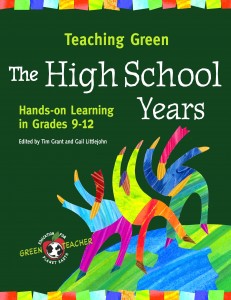





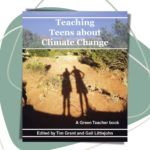
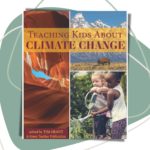
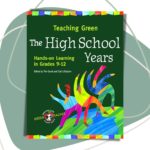
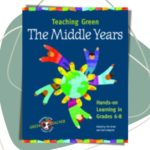

I must say it was hard to find your website in google.
You write interesting posts but you should rank your website higher in search engines.
If you don’t know how to do it search on youtube:
how to rank a website Marcel’s way